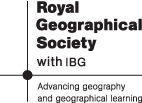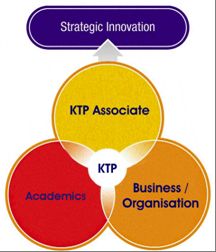 I tend not to blog too much about the European Research Council (ERC) grants within FP7 as they are so competitive and not really applicable for the overwhelming majority of researchers throughout the world, bit as I’m giving an update on Horizon 2020 and because the ERC budget is expected to go up massively, it seems important to cover it. The ERC is designed for the crème de la crème of the world’s researchers. This scheme has a budget of €7.5 billion which is used to fund frontier research projects, focusing in excellence and takes a bottom up approach. The scheme is open to researchers from anywhere in the world and they don’t have to have any partners or can have a whole team. There are 4 types of grant under the ERC:
I tend not to blog too much about the European Research Council (ERC) grants within FP7 as they are so competitive and not really applicable for the overwhelming majority of researchers throughout the world, bit as I’m giving an update on Horizon 2020 and because the ERC budget is expected to go up massively, it seems important to cover it. The ERC is designed for the crème de la crème of the world’s researchers. This scheme has a budget of €7.5 billion which is used to fund frontier research projects, focusing in excellence and takes a bottom up approach. The scheme is open to researchers from anywhere in the world and they don’t have to have any partners or can have a whole team. There are 4 types of grant under the ERC:
1. Starting Grants: for researchers 2-7 years post-PhD looking for up to €2m funding for a maximum of 5 years
2. Advanced Grants: for researchers with a ‘significant track record’ of research achievements over a 10 year period looking for up to €3.5m over a maximum of 5 years
3. Synergy Grants: for 2-4 Principal Investigators looking for up to €15m for a maximum of 6 years
4. Proof-of-Concept: for ERC grant holders looking to bridge the gap between research and the earliest stage of marketable innovation, up to €150k
The budgets are high for individual projects and the topic flexible so on paper seems like a great scheme. Indeed more than 2, 600 Principal Investigators based in 480 Host Institutions in 26 countries have received funds under this scheme since 2007. And the UK is in the top 5 in terms of success rates and we are the country where the majority of ERC is hosted; with Cambridge and Oxford as the top 2 host institutions in the whole programme.
However the scheme is super competitive; it has an average 12% success rate. All schemes have reduced in their success rates over the last 2 years. It is also biased towards certain institutions, with 50% of Principal Investigators being based in just 50 institutions. And lastly, it is mostly geared towards the physical sciences, life sciences and engineering as it funds ‘risky’ research and is looking for competitiveness which social sciences and humanities often can’t offer.
So overall, despite the fact that for Horizon 2020 the budget will increase (as will the number of applications) unless you are one of the best researchers in the world (and can prove it), working in a uni popular with the ERC and if you have a truly blue skies research project based in the hard sciences and don’t mind a low success rate then this scheme isn’t for you. If you do match this description then you will be pleased to hear there are no major reshaping plans for the scheme under Horizon 2020, just a recognition that the scientific governance of the scheme needs to be strengthened and links between this and other schemes also strengthened.


 The Royal Academy of Engineering is calling for applications to the
The Royal Academy of Engineering is calling for applications to the 




 UK and India Partnership in Advanced Manufacturing Research Challenges Call document (PDF 246KB)
UK and India Partnership in Advanced Manufacturing Research Challenges Call document (PDF 246KB) Joint Format Proposal Form (Word 174KB)
Joint Format Proposal Form (Word 174KB)
 The Neville Shulman Challenge Award, first given in 2001, is an annual award of £10,000, established for the Society by Neville Shulman CBE and his associates.
The Neville Shulman Challenge Award, first given in 2001, is an annual award of £10,000, established for the Society by Neville Shulman CBE and his associates.








 The Research & Knowledge Exchange Operations (RKE Ops) team will be hosting a lunchtime staff development session on ‘An Introduction to Research Administration and Management’ geared towards professional and support staff on the 11th July 2012 at 12.30pm.
The Research & Knowledge Exchange Operations (RKE Ops) team will be hosting a lunchtime staff development session on ‘An Introduction to Research Administration and Management’ geared towards professional and support staff on the 11th July 2012 at 12.30pm.










 From Sustainable Research to Sustainable Research Lives: Reflections from the SPROUT Network Event
From Sustainable Research to Sustainable Research Lives: Reflections from the SPROUT Network Event REF Code of Practice consultation is open!
REF Code of Practice consultation is open! BU Leads AI-Driven Work Package in EU Horizon SUSHEAS Project
BU Leads AI-Driven Work Package in EU Horizon SUSHEAS Project ECR Funding Open Call: Research Culture & Community Grant – Apply now
ECR Funding Open Call: Research Culture & Community Grant – Apply now ECR Funding Open Call: Research Culture & Community Grant – Application Deadline Friday 12 December
ECR Funding Open Call: Research Culture & Community Grant – Application Deadline Friday 12 December MSCA Postdoctoral Fellowships 2025 Call
MSCA Postdoctoral Fellowships 2025 Call ERC Advanced Grant 2025 Webinar
ERC Advanced Grant 2025 Webinar Update on UKRO services
Update on UKRO services European research project exploring use of ‘virtual twins’ to better manage metabolic associated fatty liver disease
European research project exploring use of ‘virtual twins’ to better manage metabolic associated fatty liver disease